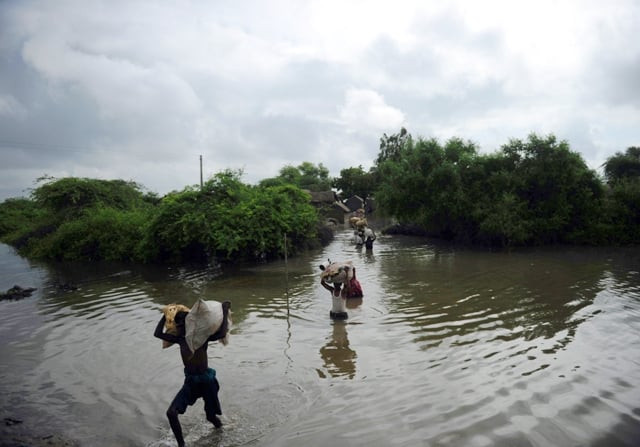Starting over: ‘National reintegration plan needed in disaster-hit areas’
Experts say women must be consulted when drawing up rehabilitation plan.

Experts say women must be consulted when drawing up rehabilitation plan. PHOTO: AFP/FILE
“We need to develop a national reintegration plan to create conditions for men and women to help them rebuild their lives,” UN Women programme specialist Fehimda Iqbal said on Thursday.
She was speaking on the second day of national consultation on Women, Peace and Security in Pakistan.
National Disaster Management Authority (NDMA) official Farhat Sheikh said frequently in times of disaster, gender roles were reversed and women became breadwinners for their families. She said that many women had lost their lives because of lack of awareness about disaster response.
UN Women programme specialist Fehmida Iqbal said, “We need to develop a national reintegration plan to create conditions for men and women to help them rebuild their lives.”

Shirkat Gah Advocacy and Communications Director Fauzia Viqar said ensuring access to medical, psychological and referral services for rehabilitation of women was important.
“Ensuring that voices of women are taken in consideration in designing and implementing reintegration process is crucial,” she said
MPA Shanila Ruth of Pakistan Tehreek-e-Insaf (PTI) said, “Research shows that 50 percent of women worldwide face violence. Over the last 15 years, religious intolerance has increased. Minority communities have been displaced because their houses were burnt and women were harassed.”
She said that it was important to trace the roots of violence against women in Pakistan.
Shirkat Gah’s Tabinda Sarosh discussed a rehabilitation model. Sarosh said that Shirkat Gah had carried out a research into power dynamics which suggested that women were placed on a lower level than men and minority communities were even more vulnerable.

“Women-friendly spaces must be established where they feel secure and can discuss their problems,” she said.
Cholistan Development Council of Pakistan’s Farooq Ahmed Khan shared some case studies.
Khan said, “In south Punjab, banned militant outfits like Jaish-i-Muhammad and Lashar-e-Taiba have grabbed widows’ lands to construct madrassas. When one of their workers was arrested in Bahawalpur, they attacked the Civil Lines police station,” he said.
Bhittai Social Watch and Advocacy’s Azam Khan highlighted tribal conflicts and showed a documentary titled The Tribal Trouble.
National Commission on the Status of Women Chairman Khawar Mumtaz concluded the two-day consultation and urged women to join peace movements.
Mumtaz said, “We discussed different dimensions of conflicts from different angles. Separate institutions must be established to deal with disaster and conflicts.”
Published in The Express Tribune, July 5th, 2013.


















COMMENTS
Comments are moderated and generally will be posted if they are on-topic and not abusive.
For more information, please see our Comments FAQ